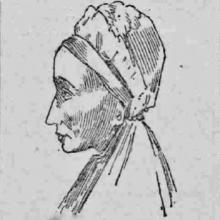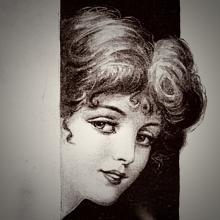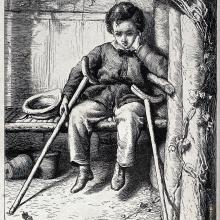
1898
SENSATIONAL AFFAIR AT STOCKBRIDGE.—A considerable sensation was caused in Church Lane, Stockbridge, Edinburgh, yesterday afternoon, in connection with the attempted execution of a sanitary inspector’s warrant for the examination of a dwelling house there.[1]
The house in question, which opens directly off the street, is tenanted by two elderly women, and complaint, it is alleged, had been made against them by certain of the neighbours that the house was in a dirty and insanitary condition. The result of the complaint was that, on the petition of the Public Health Department, a warrant was issued for the examination of the interior.
In order to execute this warrant two sanitary inspectors belonging to the Department, accompanied by a couple of police officers, proceeded to the place yesterday, but on seeking admission they were met by a stubborn resistance on the part of one or both of the inmates, who absolutely refused to allow them to enter.
Seeing that the officers were evidently bent on forcing an entrance, one of the women fired a revolver through a glass panel in the door. The weapon, which would appear to have been simply exploded rather than deliberately aimed at any of the officers, is said to have been loaded with ball—the bullet striking the dead wall on the opposite side of the lane.
On one of the police officers endeavouring immediately afterwards to peer through the window, he was confronted by the muzzle of the revolver close to his face. The officers thereupon decided to retire meantime, and consult their superiors as to the course which should be followed.
The next step will probably be the preferment of a criminal charge against the woman in connection with the discharge of the revolver, but no action in that direction had been taken by the police authorities last night. The affair naturally created a good deal of stir in the neighbourhood, not only at the time, but throughout the evening.
Scotsman, 14 January 1898
[1] Church Lane was renamed Gloucester Lane in 1966. Several plausible bullet holes are still visible on the wall opposite No. 1.
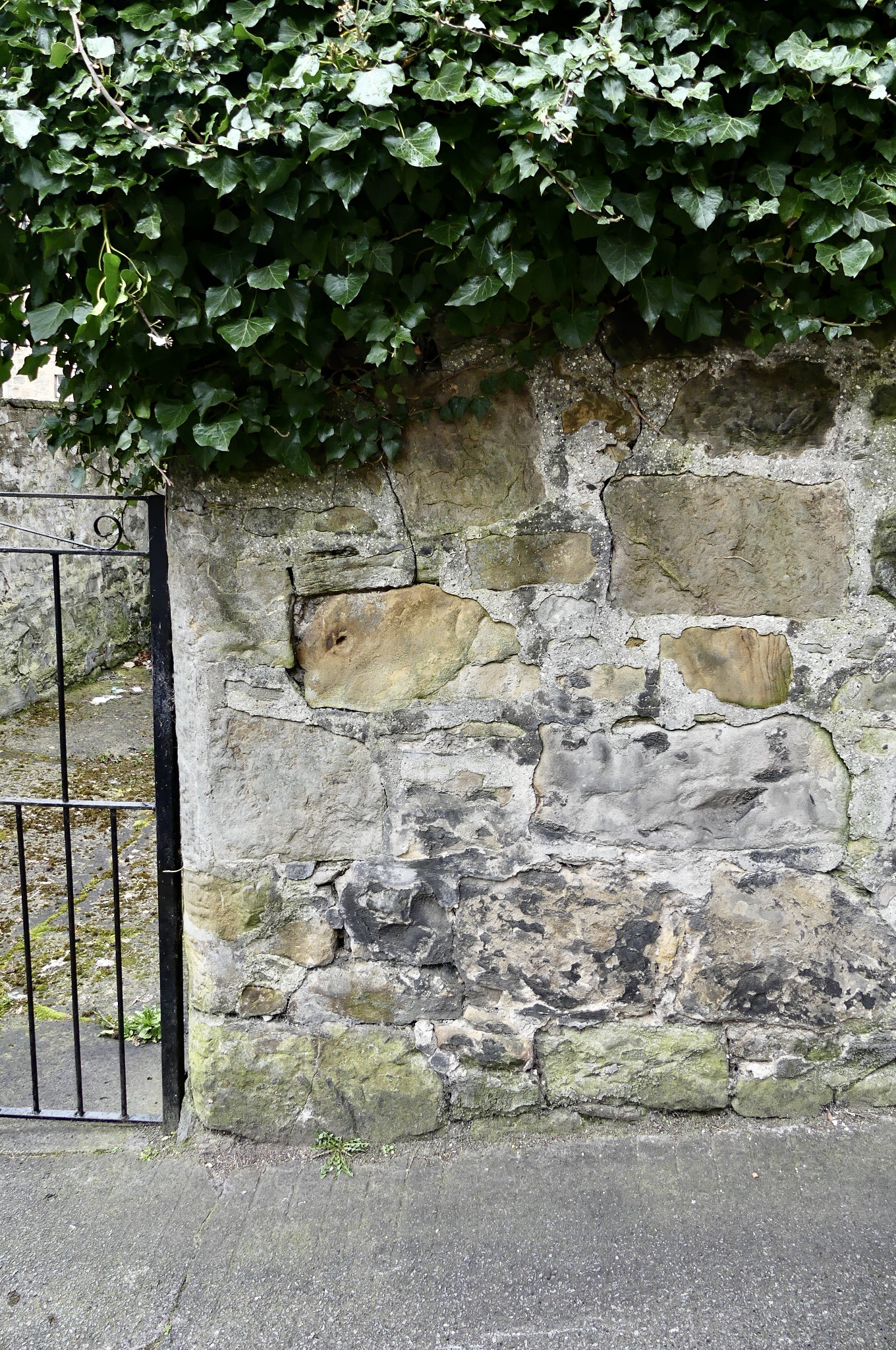
*****
THE STOCKBRIDGE AFFAIR.—In connection with the sensational incident, which took place in Stockbridge on Thursday upon the examination of a house by the Sanitary Inspector, Mary Davidson, an old woman of seventy years of age, residing at 1 Church Lane, was arrested yesterday afternoon on a charge of recklessly discharging firearms.
When the officers forced their entrance to the house they found the woman with a loaded six-chambered revolver, with one of the chambers discharged.
The woman, who has been examined and certified as insane, will appear at the bar of the Police Court to-day.[2]
Scotsman, 15th January 1898
[2] On 14 Jan., the Edinburgh Evening News reported that the Police Surgeon, Sir Henry Littlejohn, had diagnosed insanity, and that Davidson was to be removed to an asylum in the morning. Fergus Smith [@oldscotbooks] notes that Mary Davidson was held at the Edinburgh Royal Asylum for 5 months before being discharged 'relieved' to the City Poorhouse (NRS MC7/9).
*****
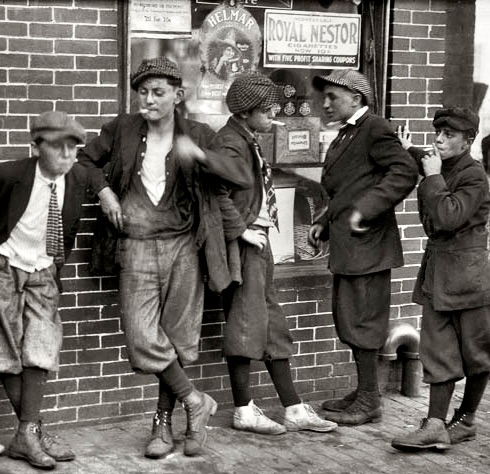
JUVENILE CRIME IN EDINBURGH.
A PITIFUL STORY.
Before Sheriff Maconochie, City Police Court to-day, seven lads, whose ages ran from 13 to 17 years, were brought up on a charge of creating disturbance by shouting and swearing, using bad language, and fighting with each other in a common stair in Greenside Row on Wednesday last.
Detective Cuthbert made a long statement regarding the lads which revealed a bad case of juvenile depravity. They were chief members of a gang of rowdy youths, he said, who were a source of considerable annoyance to the police and to the public about the Register House and vicinity. They were only regarded as heroes by the other members of the gang, it seemed, after being in the hands of the police.
Witness had visited the houses of the accused, and in one case the parents could not be traced, but were living apart. The father, indeed, was compelled to leave Edinburgh on account of a serious assault. The boy got a very bad name, having several convictions against him, and was rapidly becoming a wreck.
Another of the lads was illegitimate, and the adopted father was of drunken habits, living in a filthy one-roomed house with a woman of bad fame. The boy’s mother died through a burning accident when drunk. The boy had never had a chance of doing good, and the result was that he was a a ringleader in all mischief.
A third boy’s parents were travelling show people, and he had left them. He had no home, and was rapidly drifting into a career of crime, having been several times in the hands of the police since December last. He sold vestas and newspapers, and usually slept in water-closets at nights.
The worst case, however, was that boy named Lonie, and it was chiefly accounted for also by his home surroundings. His parents were a very low class, it was said, and well-known as inveterate shebeeners, the whole family participating in the business. Tlie father was a lazy, idle character, and loafed about the streets with thieves, and the lad was well-known to the police, having no less than seven previous convictions.
The Sheriff remarked that they all seemed to be very bad boys indeed and a nuisance to everybody. Three of the accused were sent to prison for seven days, one for three days, two for two days, and one was ordered to receive eight stripes with the birch rod.
Edinburgh Evening News, 4 March 1898
[Image: via Shorpfy.com]
[3] The deterrent effect of stripes could not always be relied upon.
*****
EDINBURGH BAKER'S DIVORCE ACTION.
Lord Kincairney heard evidence in the Court of Session to-day, in action for divorce by Robert Blackley, journeyman baker, 24 Barony Street, Edinburgh, against his wife, Eliza Mowat or Blackley, 6 New Broughton, Edinburgh.
Pursuer, examined by Mr Munro, said he was 34 years of age, and was. married to the defender on 18th September, 1885. There were six children of the marriage, one being born before the parties were married. They had been in Australia.
His wife had a violent temper, and after returning from Australia his life was a very unhappy one. It had been so throughout. He left his wife in October, 1895. Since then a child had been born by his wife, and pursuer said he was not the father of that child. His wife was seven years older than he was. He did not walk out with his wife on Saturday nights, because she always said that he (the witness) was too young for her. (Laughter.)
In 1894 he began to have suspicions regarding his wife’s meetings with another man named Tillie. About that time she used to say that she had made a mistake marrying a baker. She would have preferred to have married a joiner or cabinetmaker. (Laughter.)
In October, 1895, he was refused admission to his own house by the defender. He thought there was something wrong, and on being refused admission for a second time he fetched a policeman. He got in, and took his clothes away with him. Since that time he had never spoken to, or lived with, the defender. He had paid his wife aliment at the rate of 10s for a time, and 7s 6d afterwards weekly. Cross-examined by Mr A. M. Anderson, witness said that his wife never accused him of being an idle fellow. He never assaulted his wife or used foul language to her.[4]
Edinburgh Evening News, 18 February 1898
[4] The case continued into March. The judge eventually concluded that unfaithfulness had not been proved, and on that ground assoilzied the defender from the conclusion in the summons, with expenses (EEN, 29.3.98).
*****
ALARMING AND DESTRUCTIVE FIRE.
An alarming and destructive fire took place at the furniture storm of Sloan & Son (Limited) in Old Broughton on Wednesday evening.
The fire was discovered shortly after seven o’clock, and many of the men residing on the outside of the premises, no time was let in salving operations being set afloat. Some valuable horses were first got out, and attention was turned to the ground floor on the west side where so many of the company’s well-known furniture vans were stored. Among these was a caravan used in the country districts for a lecturer of the Unionist party going round in the summer time and addressing meetings, which was rescued; but before the more valuable furniture could be reached the fire had got a strong hold of both of them and of the building.
The private hose was used, but there was little water in the main, and the pressure so feeble that the water could not rise to the first floor window. With promptitude the fire brigade were on the scene under Mr Pordage, and the water officer soon had the valves adjusted so as to divert the water where it was most needed. Long lines of hose were laid from York Place, Duke Street, and Broughton to bring the water down to Barony Street.
The stores were full of furniture, and the fire rapidly spread from the west to the northern and the larger block. It stood three storeys in height, and for some time both the west and the central buildings burned furiously. After a hard struggle the firemen succeeded in confining the fire to the central building and entirely saving the eastern block, in which was also stored a large quantity of valuable furniture.
The men worked very heartily, and several of them at times seemed exposed to imminent risk. By means of ladders they got on the top of the east buildings and poured a well-directed stream of water upon the point where danger was most to be feared. The fire in the central building and in the north-east corner of the west building burned fiercely for over an hour. The central roof fell in before eight o'clock, and the interior of the building, with its contents, was entirely destroyed.
The furniture waggons, which had been partly drawn into the yard, were allowed to burn until the danger to the adjoining property had been obviated, when the hose was then turned upon them, and the fire there extinguished.
The buildings destroyed were estimated by Bailie Sloan, who was immediately apprised of the fire, at about £2000, and as he thought the furniture in store and the waggons burned would amount to as much more, the total is likely to be about £4000, which is covered by insurance.
Besides the Bailie, Councillors Cranston, Brown, and M’Michael, Burgh Engineer Cooper, and Chief Constable Henderson assisted in extinguishing the fire, which, however, smouldered throughout the night.
Mid-Lothian Journal, 22 July 1898

AN EX-GORDON HIGHLANDER ACCUSED OF HOUSEBREAKING
At a pleading diet of Edinburgh Sheriff Court to-day—Acting Sheriff-Substitute Sym on the bench—Alexander Hutcheon, residing at Queen’s Place, Greenside Row, Edinburgh, was charged with having, on 28th July, broken into a shop in Abercrombie Place occupied by George Paxton, painter, and stolen four keys;[5] also with having on 28th or 29th July, broken into a house in Abercrombie Place, and stolen two tin cash boxes, 15 gold coins, 117 silver coins, 308 copper coins, 87 church tokens, and a number of articles of jewellery.
Mr William Morris, solicitor, stated on behalf of the prisoner that he had been 10 years in the Gordon Highlanders, and that while serving with the regiment in India he had been attacked with fever, with the result that when he took drink it caused him to lose entire control of his actions.
His certificate of discharge from the army showed that he had borne a good character while in the service. On the date libelled he met some companions, and getting under the influence of drink, committed the offences. The Sheriff sentenced him to four months’ imprisonment.
Edinburgh Evening News, 16 August 1898
[Image: Wikipedia, public domain.]
[5] William Paxton & Son, housepainters and decorators, are listed at 1 Abercrombie Pl. in the Edinburgh & Leith Post Office Directory, 1898–99.
*****
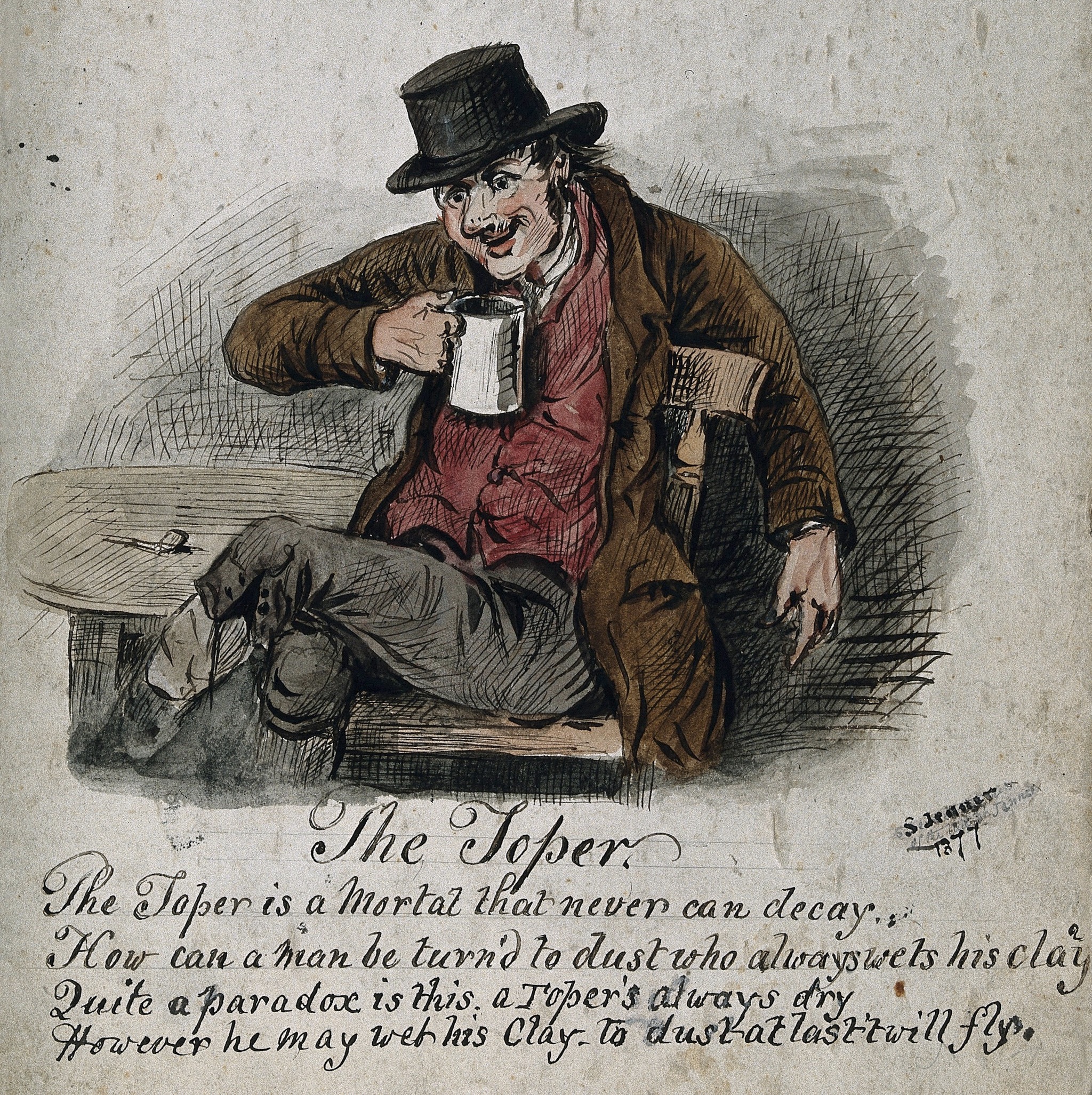
AN EXPLANATION OF JUVENILE CRIME.
A pitiable story was revealed in Edinburgh City Police Court to-day—before Bailie Hay —when two boys, named Edward Airlie (7) and James Sinclair Airlie (10), living in Jamaica Street Lane, were charged with stealing coppers from children who had been sent messages.
On the 6th August last, it transpired, the first boy was cautioned by the Chief Constable for two acts of theft, and on the 4th inst. the other boy was charged with theft in this court, but the charge was departed from in view of circumstances. The clerk read schedules prepared by the police, from which it appeared that the mother was a very hard-working, respectable woman, but the father, Thady Airlie, a shoemaker, was of drunken habits, had been several times convicted of neglecting and ill-treating his children, and gave no support to his wife and family. The wife, consequently, had to go out and work, with the result that while she was out the boys played truant from school, and were quite beyond her control. When the police visited the house last night they found the husband drunk.
Mr Turnbull, officer of the S.S.P.C.C.,[6] also spoke to the respective characters of the mother and father, and corroborated the statements of the police. The husband had been four times convicted of beating the children and leaving them without food, and on one occasion deserted them on the street, and left the wife to fight the battle out by herself. Detective Mann corroborated, and the case was ultimately continued until Monday for further inquiries, the husband being ordered to find bail for his appearance.
Edinburgh Evening News, 21 October 1898
[Image: Wellcome Collection, Attribution 4.0 International (CC BY 4.0).]
[6] Presumably, the Scottish Society for Prevention of Cruelty to Children. The [not Scottish] Society for Prevention of Cruelty to Children was established in London in 1884, with branches then opening across Scotland. In 1889, the Prevention of Cruelty to Children Act (‘The Children’s Charter’) was passed, and branches in Glasgow and Edinburgh merged to form the Scottish National Society for the Prevention of Cruelty to Children.
*****
The two boys, Edward Airlie and James Airlie, who were charged in Edinburgh Police Court on Friday with stealing money from children who had been sent messages, were to-day ordered to be sent to an Industrial School.[7]
Edinburgh Evening News, 24 October 1898
[7] In a bid to reduce juvenile delinquency, the Industrial Schools Act (1867) established schools where neglected children could be sent to learn a trade. Some were boarding schools. For more, read HERE.
*****
THE RESULT OF AN UNREASONABLE REQUEST.
Before Bailie Hay, in Edinburgh City Police Court to-day, Robert Whiteford (58), baker, living at 40 N.-W. Cumberland Street Lane, was convicted of having, about two o’clock on Saturday morning, assaulted Henrietta White or Whiteford, his wife, and Margaret Whiteford, his daughter, by striking the former on the face, pulling and dragging her about, and throwing a boot at her, and the latter, by striking her several blows with his hand and a pair of braces.
Accused woke out of a drunken sleep at two o’clock in the morning and ordered his wife to rise and light a fire and get him something to eat. As she wasn’t well, she said she was unable to do so, whereupon he struck her on the face, and tried to drag her out of bed by the feet. She screamed to her daughter, whereupon the prisoner turned his attention to her and assaulted her as stated.
The wife was a sober, respectable woman, and had to go out to work to keep the family, the husband working only very intermittently. He was sentenced to 40 days’ imprisonment, with hard labour.
Edinburgh Evening News, 24 October 1898
*****

“YOUTHFUL BURGLARS”
John Prentice (16), 2 Gayfield Street; James M’Donald (17), 6a Gayfield Square; Charles Pentylin (15), 15a Gayfield Square; John Masino (15), 1 East Broughton Place; and John Grieve (12), 1 Barony Place, were all charged with having, on Tuesday last, from a coach-house in Broughton Place Lane, stolen 2½ dozen eggs.
The accused, who pleaded guilty, it appeared were in the habit of hanging about this coach-house, doing odd jobs. On this day the youngest boy hid himself in the place when it was locked up, and let his companions in. They sold 20 of the eggs to another boy for 10d, and the rest they kept and took home.
It was their first offence, and the Sheriff put them each under 10s caution for their future behaviour.[8]
Edinburgh Evening News, 17 November 1898
[Image: Ischa1, Wikipedia, public domain.
[8] About £39 today, or 1 day's wages for a skilled labourer in 1898. John Masino was the son of Signor F. Masino, a violin tutor at 1 E. Broughton Pl. John and his 11-year-old brother Leo were convicted of stealing confectionery (among other things) the following year, and sentenced to 3 days’ imprisonment and 6 stripes, respectively. His brother Andrew had been had up for stealing chocolate from an automated machine at Waverley Station in 1894.
